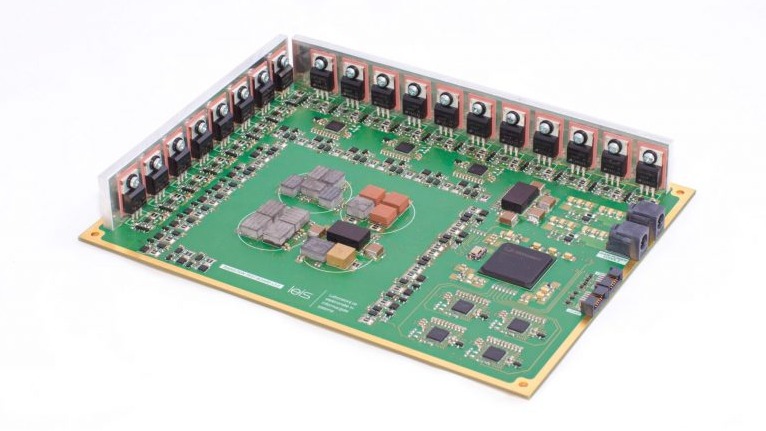Gallium nitride (GaN) technology is considered to be one of the most promising semiconductor technologies among the raising solutions for power applications and is already maturing at a rapid pace. With a high switching capacity, a low on-resistance, a high breakdown strength and a low radiation sensitivity, GaN technology outperforms silicon based power solutions. Therefore, GaN technology would be a perfectly suitable solution to replace silicon based power switches and actuator drivers. Performing research activities on the behaviour of GaN technologies in a radiation harsh environment could contribute to additional miniaturisation, improvement of efficiency and performance, and better thermal stability of power control and conditioning units (PCDU), remote terminal units (RTU), and other switch based control system applications. Several studies have been conducted on the radiation characterisation of GaN structures stating that there is no significant amount of degradation for GaN based irradiated devices. Radiation tests did not indicate a single event gate rupture or a single event burnout with heavy ion irradiation and no significant parameter degradation when under proton irradiation. Most of the published papers are discussing degradation effects for high frequency GaN applications, where efficiency and gain of the amplifying block are the key parameters. On the other hand, there is a small amount of research done on usage of the GaN technology in power applications for switching and actuation. Therefore, we are proposing a research activity focused on the radiation effects and the degradation of GaN structures in power switches, bridge designs, and drivers. During the proposed research activity, we intend to prototype a radiation testing device for GaN switching technology including automated testing software and perform the radiation test campaign.

